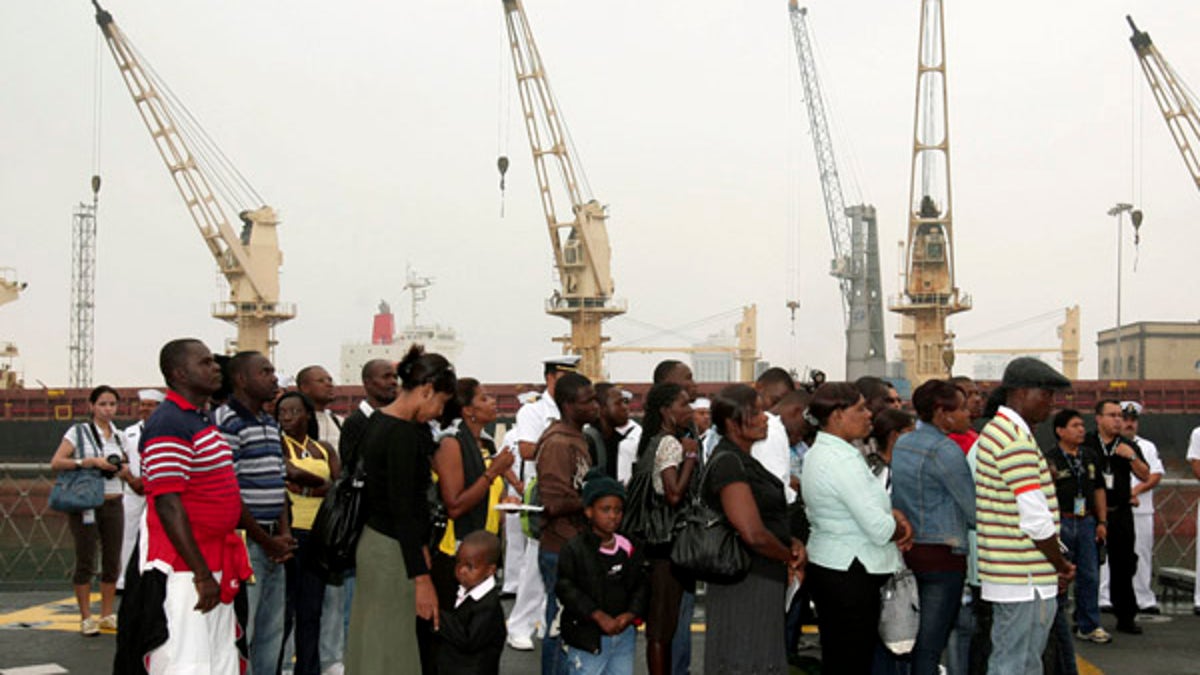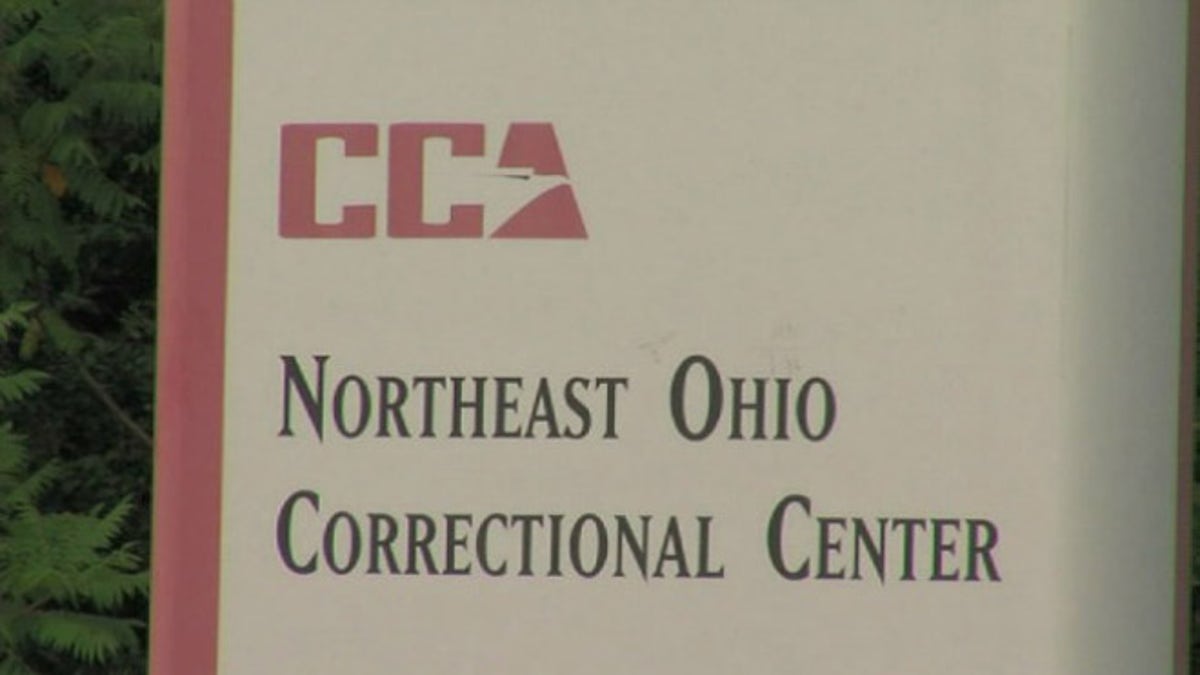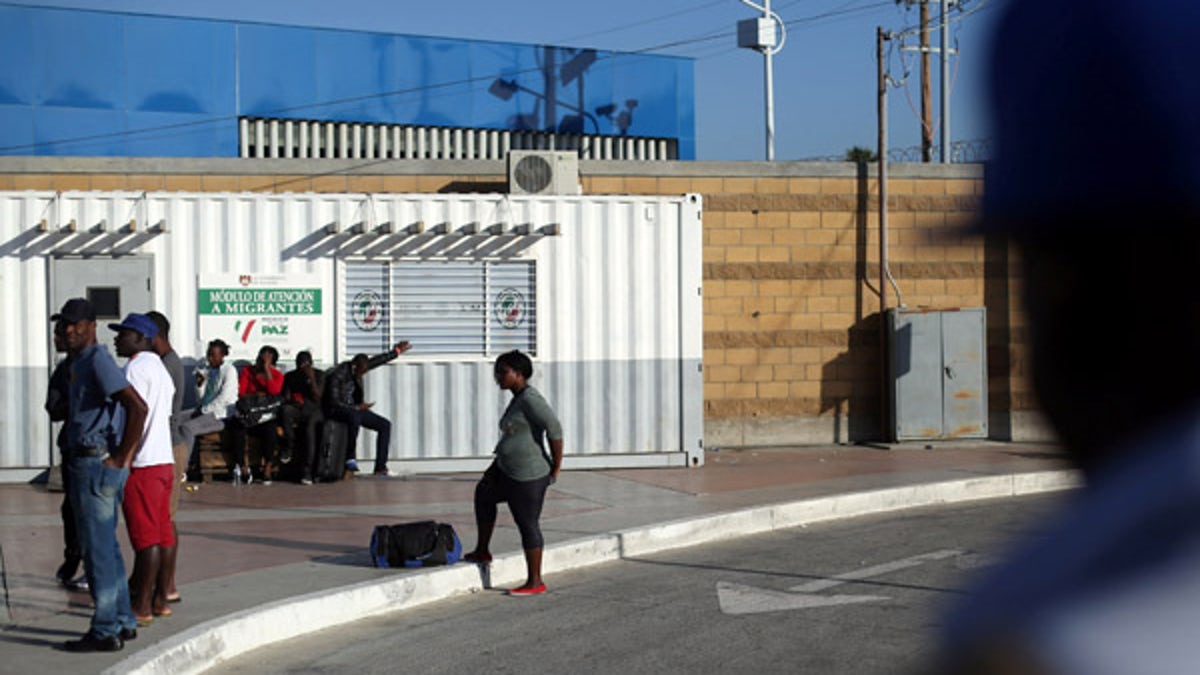
Haitians, shown here aboard a Mexican navy ship at Veracruz, have entered the U.S. via the Mexican border in increasing numbers. (REUTERS/Martin Lara Reyna)
Haitians crossing illegally into the U.S. via the Mexican border could wind up in an Ohio prison under a federal plan to accommodate them pending immigration hearings.
The Department of Homeland Security is negotiating with the operators of the Northeast Ohio Correctional Center to lease space to house an anticipated influx of Haitian illegal immigrants, according to the Wall Street Journal. Officials with Immigration and Customs Enforcement (ICE), a division of DHS, expect thousands from the impoverished island nation to cross across the U.S.’s southwestern border from Mexico.
The proposed use of the prison, which is operated by private company CoreCivic, has met opposition in the Buckeye State.
“Incarcerating thousands of immigrants in a private prison before deporting them is unjust and allowing a corporation to profit from it is a travesty,” said Mike Brickner, senior policy director of the ACLU of Ohio, said in a statement.

One location currently being considered is the Northeast Ohio Correctional Center in Youngstown.
The ALCU calls negotiations between DHS and CoreCivic -- which was known until recently as Corrections Corporation of America — troubling, considering it was just two months ago that the Department of Justice announced that they would end their use of private prisons after evidence of widespread abuse was found.
“The DHS’s decision to partner with private prisons sends a horrible message about profiteering at the expense of individuals seeking asylum,” Brickner said. “During ICE detention, these people have been subject to abuse and mistreatment. Incentivizing private companies to detain people for profit only exacerbates our criminal justice system problems. To allow more people to be incarcerated for a profit in Ohio sends our state in the wrong direction.”
DHS is also looking to lease similar spaces at facilities in New Mexico, Colorado and Texas.
Officials say they have room to fulfill DHS’ request.
“The facility currently houses inmates for the U.S. Marshals Service, but does have additional available capacity,” read a statement provided by CoreCivic to FoxNews.com.
Officials for the Department of Homeland Security did not immediately return requests for comment.

October 4, 2016: Haitian migrants wait outside the Migrant Care office after leaving Brazil, where they sought refuge after Haiti's 2010 earthquake, but are now attempting to enter the U.S., in Tijuana, Mexico. (REUTERS/Edgard Garrido)
The surge is due to thousands of Haitian nationals who fled their country after the devastating earthquake in 2010 for South America and have taken the past several years to slowly make their way to the U.S. border. Over 5,000 Haitians have reached the U.S. Southern Border. According to the Journal, when these immigrants present themselves at ports of entry looking for asylum they are then turned over to ICE and are held before any possible deportation.
The U.S. Department of Homeland Security said back in September that it was widening efforts to deport Haitians, in response to the large influx.
Immigration and Customs Enforcement Director Sarah Saldana testified to Congress at the time that other governments told her on a recent trip to Central America that 40,000 Haitians were on their way and called it an "emergency situation" on California's border. She said the estimate of people on their way contributed to the policy shift, as did changing conditions in Haiti.
The move lifted previous special protections that shielded Haitians from deportation after the earthquake.








































